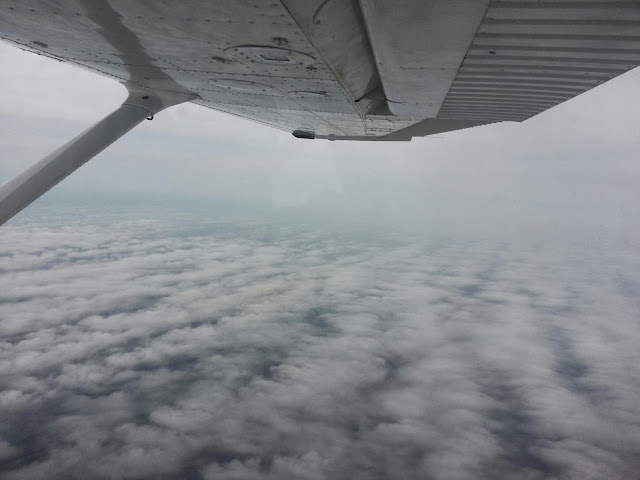Out of all the things that pilot should have when going out for a flight on the friendly skies, there is one item that stands out above the rest. Sure, those new pair of Ray Bans keep the sun out of your eyes on a beautiful VFR, and even make you look like a super stud. But, what happens when the gorgeous VFR day starts to fade while you're out and about? Marginal conditions are challenging for a strictly VFR pilot, and anything less than less is seriously dangerous. VFR into IMC is one of the leading causes of general aviation accidents. Even that state-of-the-art glass cockpit may not be enough to get you out of trouble when the visibility fades and the ceiling drops closer to the surface. So what can you do to save yourself from being another statistic? That's an excellent question!
 In my opinion, that best training a VFR pilot can have is instrument training. I know, that sounds completely backwards, but hear me out. Going through an instrument training course will improve your skills in my different areas that will transfer over to VFR flying as well. Most importantly, interment training will help you develop an instrument scan inside the cockpit. Your eyes will be trained to move faster than a heavily caffeinated cheetah, scanning and cross-checking each primary and secondary instrument. This will translate to better altitude and airspeed control, coordination, and a better overall awareness in the cockpit. And when the weather unexpectedly takes a turn for the worst, you have a way out. Having an instrument rating is a great way to keep yourself safe while flying VFR. At the very least, it may be the best insurance policy you could ever hope to own. So, how does one go about earning this potentially life-saving rating?
In my opinion, that best training a VFR pilot can have is instrument training. I know, that sounds completely backwards, but hear me out. Going through an instrument training course will improve your skills in my different areas that will transfer over to VFR flying as well. Most importantly, interment training will help you develop an instrument scan inside the cockpit. Your eyes will be trained to move faster than a heavily caffeinated cheetah, scanning and cross-checking each primary and secondary instrument. This will translate to better altitude and airspeed control, coordination, and a better overall awareness in the cockpit. And when the weather unexpectedly takes a turn for the worst, you have a way out. Having an instrument rating is a great way to keep yourself safe while flying VFR. At the very least, it may be the best insurance policy you could ever hope to own. So, how does one go about earning this potentially life-saving rating?The requirements for an Instrument rating can be found HERE, as written in Section 61.65 of the Code of Federal Regulations.
These are the requirements as listed for an Instrument rating under Part 61. One may consider doing their training in a Part 141 environment to reduce some of the required time.
In conclusion, I could not be more supportive of pilots earning an added Instrument rating. Have fun out there, and safe flying!
No comments:
Post a Comment